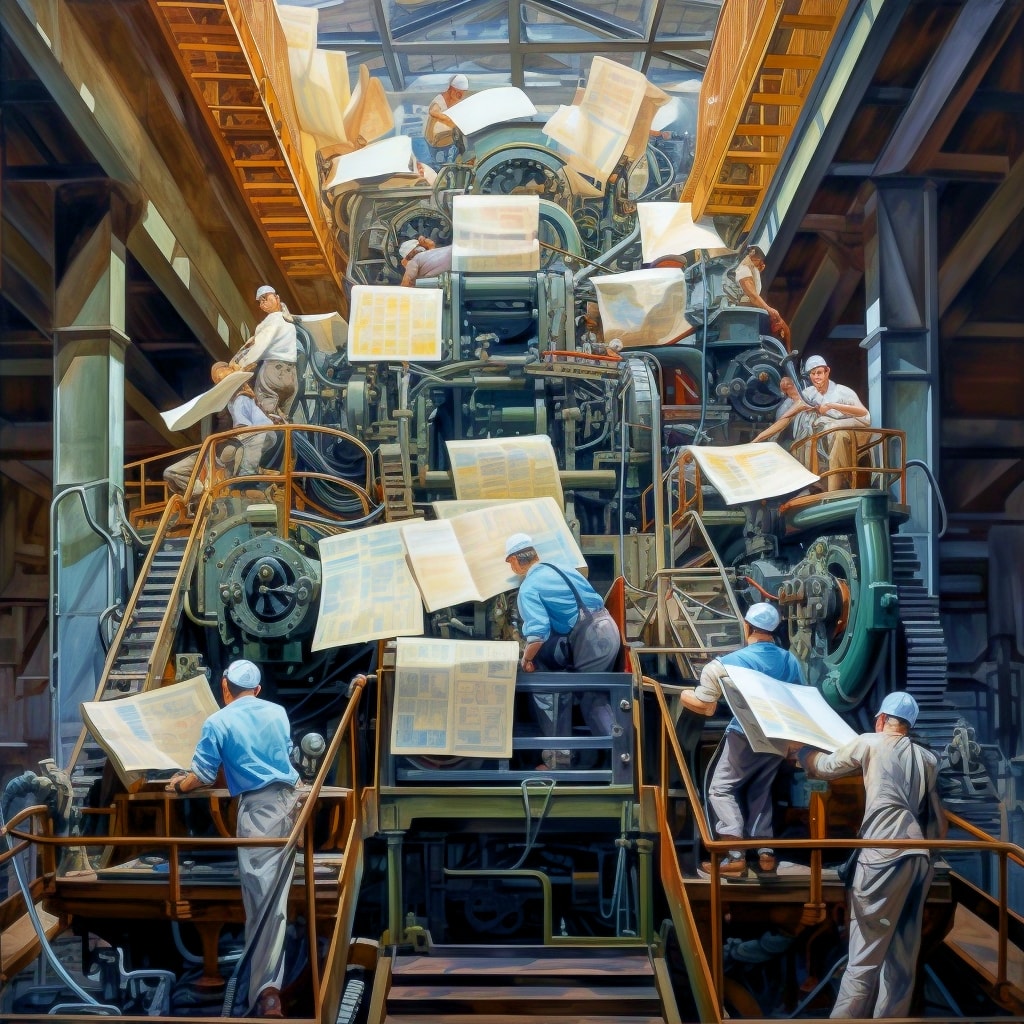Welcome, and thank you for being part of the MyZucoins community! Let’s get into an interesting piece of crypto, finance, or tech news to stay ahead.

Blockchain Smart Contracts 101: Transformative Tools For The Digital Age
Blockchain technology and smart contracts are redefining the landscape of digital transactions and contracts.
They’re shaking up numerous industries by enforcing rules, enhancing transparency, and improving efficiency.
Blockchain is a decentralized and distributed ledger technology that records transactions across a network of computers.
Unlike traditional centralized ledger systems, blockchain operates on a computer network that jointly maintains the ledger which should eliminate single points of failure.
Through cryptographic techniques, blockchain ensures a high level of security, making it almost impossible to alter recorded data.
Smart contracts, on the other hand, are self-executing contracts with the agreement’s terms encoded into computer code.
They can automatically execute and enforce the agreement when predefined conditions are met, eliminating the need for intermediaries.
These contracts are currently most often built on blockchain platforms like Ethereum or Solana.
Smart contracts have far-reaching applications beyond cryptocurrencies.
From finance to healthcare, supply chain management to gaming, these technologies are innovating how data and transactions are managed in the digital era.
As these technologies continue to evolve, we can anticipate even more transformative changes in the business and technology landscape. Read more here.
Centralization threatens blockchains.
“People often choose centralized services because they’re easier.”
Economic Potential Through Smart Assets.
Tokenization: A new dawn for insurance, agriculture, and real estate.
Tokenization 101: The future of ownership?
Ethereum’s growing pains show the blockchain has a long way to go.
AI needs to be decentralized for the same reasons money does.
Blockchain is a way of thinking: Can we reshape humanity’s future?
Does Zucoins And Splitchain Support Smart Contracts?
With the growth of cryptocurrencies, there is a pivotal shift happening in transaction dynamics.
This shift means more decentralization, transparency, and unprecedented autonomy in managing assets, digitally.
By drawing insights from the revolution brought about by blockchain and smart contracts, Zucoins and Splitchain are strategically positioning themselves to leverage the potential of these transformative technologies.
Firstly, blockchain technology’s key strengths are its security and immutability.
Transactions, once recorded, are usually extremely hard to tamper with, providing a more robust and safer platform for transfers of value than centralized systems.
Zucoins, by being built on the Splitchain network, goes beyond these fundamentals by adding security features like two-factor authentication (2FA), enhancing user safety without compromising on the principles of decentralization.
Secondly, smart contracts are beginning to be favored for their self-enforcing nature.
These contracts, written in computer code, automatically execute the terms of the agreement when certain conditions are met.
While the primary purpose of Splitchain is to facilitate transactions.
Within each transaction are details of its contained metadata.
This metadata can be used to prove ownership or possession of just about any kind of digital resource—such as a file or a link, using a provable hash of a document (to void against tampering).
As it does with normal tokens, it can also be used to prove ownership sources. For example, music artists could launch their own licensing agreements, as David Bowie’s team recently experimented with.
Smart contracts in the Splitchain world are a subset of the bigger group of Smart Assets.
When you think about what digital systems and software can do, it’s all about dynamic changes.
An asset could automatically change, if preferred, according to some schedule or factor.
A smart contract would be used to apply such changes to this smart asset.
This is a rarely discussed side of the bigger topic of smart assets—far more potent than smart contracts themselves, as it incases a token as a smart asset.
With the Splitchain network’s feeless transactions, this is a very different approach to traditional blockchains.
This flexibility could open up new avenues for Zucoins in the realm of digital assets, agreements and contracts.
Another upside of the decentralized nature is that it puts control back into the hands of users.
So long as that interface is simple enough to use and understand as a normal centralized system, decentralized systems can win out against centralized solutions that often have a key selling point of making things easier.
As Albert Einstein once said, “We cannot solve our problems with the same thinking we used when we created them.”
If you liked this newsletter, please forward it to someone who might like it too.
You can also donate here or even buy some Zucoins. Every little bit helps us improve.
What did you think of this newsletter? Reply to send us feedback on what you liked or want to see featured more. There’s more coming, so stay tuned.
—
All the best,
Peter & Rob
MyZucoins
Disclaimer: Of course, this is not advice, financial or otherwise. It’s also important to consider the risks and challenges associated with any potential benefits.